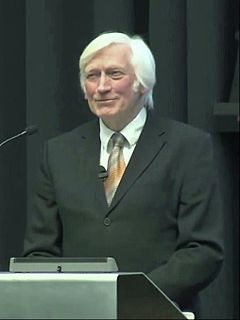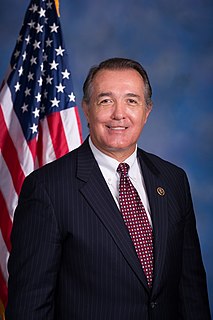A Quote by Dale Jamieson
If you have a flat, fixed view of state interest then it is difficult to understand why some states adopt aggressive climate change policies, even when that risks economically disadvantaging them, and other states do not even when it would be in their economic interests to do so.
Related Quotes
We have a structural problem because you can simultaneously understand the medium to long-term risks of climate change and also come to the conclusion that it is in your short-term economic interest to invest in oil and gas. Which is why, you know, anybody who tells you that the market is going to fix this on its own is lying to you.
It is much more difficult to get implemented politically what might be desirable economically. Even if you came out with an economic argument in favor of equalization - and I think there are arguments on both sides - I would still come down in favour of some sort of a scheme on strict economic grounds.
In the Islamic world, the U.S. is seen in two quite different ways. One view recognizes what an extraordinary country the U.S. is.The other view is of the official United States, the United States of armies and interventions. The United States that in 1953 overthrew the nationalist government of Mossadegh in Iran and brought back the shah. The United States that has been involved first in the Gulf War and then in the tremendously damaging sanctions against Iraqi civilians. The United States that is the supporter of Israel against the Palestinians.
It is sometimes suggested that the [Nazi economic] recovery was a product of a specific fascist economic strategy, which distinguished it from the recovery efforts of other capitalist states. While few would disagree that the Nazi regime had a number of clear ideological preferences when it came to the economy, the policies pursued in 1933 had much in common with those adopted in other countries, and with the policies of the pre-Hitler governments.
...by serving as the dominant power in the Gulf, WE maintain a 'stranglehold' over the economies of other nations. This gives us extraordinary leverage in world affairs, and explains to some degree why states like Japan, Britain, France, and Germany - states that are even more dependent on Persian Gulf oil than we are - defer to Washington on major international issues (like Iraq) even when they disagree with us.
In the Islamic world, the U.S. is seen in two quite different ways. One view recognizes what an extraordinary country the U.S. is. Every Arab or Muslim that I know is tremendously interested in the United States. Many of them send their children here for education. Many of them come here for vacations. They do business here or get their training here. The other view is of the official United States, the United States of armies and interventions.
The Constitution does not protect the sovereignty of States for the benefit of the States or state governments as abstract political entities, or even for the benefit of the public officials governing the States. To the contrary, the Constitution divides authority between federal and state governments for the protection of individuals.































